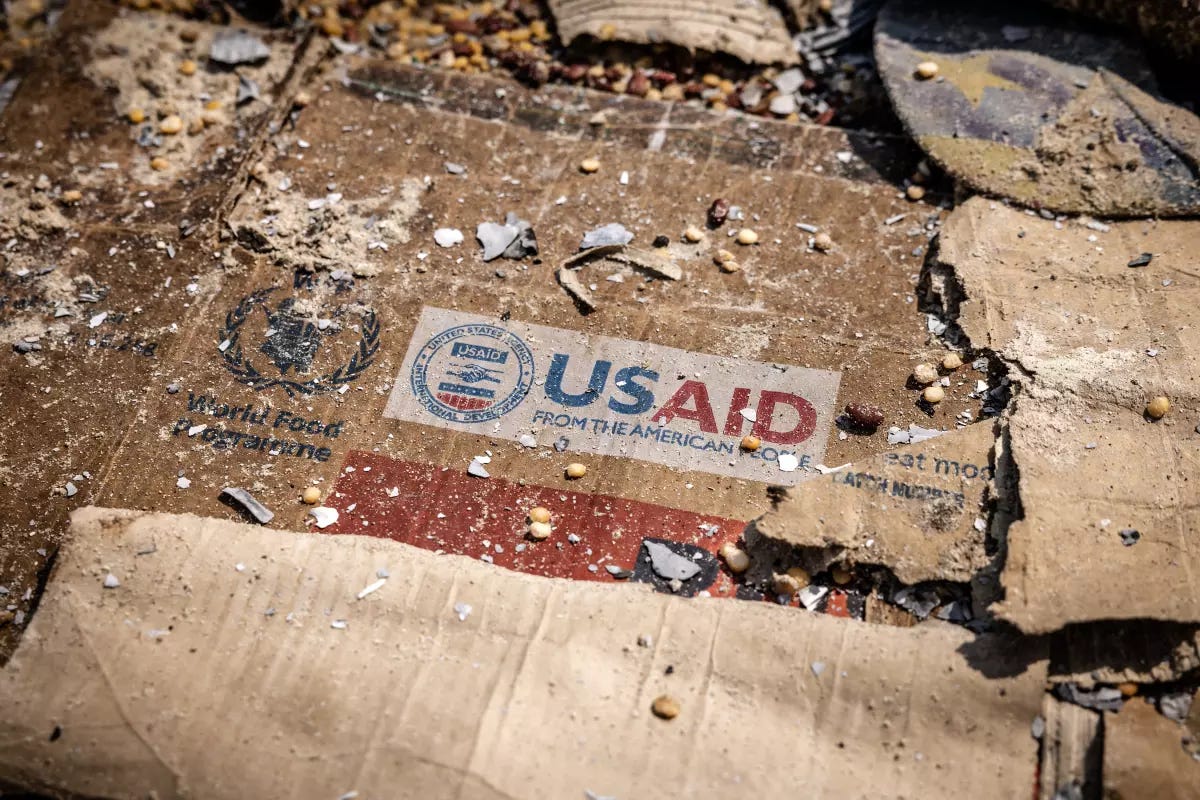Why Did U.S. Aid Fail in Iraq?
The failure of U.S. intervention in Iraq is not just a policy misstep; it is a fundamental lesson in the limits of foreign influence
The United States entered Iraq in 2003 with sweeping ambitions: to topple a dictator, establish democracy, and usher in an era of stability. It was a mission backed by billions of dollars in aid, military training programs, and institutional reforms. Yet today, more than two decades later, Iraq remains a fragmented state plagued by sectarianism, corruption, and foreign influence.
As someone who lived through this transformation, I saw firsthand how American intervention—despite its promises—failed to deliver sustainable democracy. The reality is that democracy cannot be imposed from above, and foreign aid absent accountability fosters long-term dependency rather than reliable self-governance.
The fundamental flaw in U.S. intervention was the naïve belief that democracy could be implanted through military force and financial assistance. Iraqis were expected to embrace democratic governance immediately after the fall of Saddam Hussein, yet they had little to no prior experience with political pluralism. Many had only known dictatorship, and the sudden dismantling of state institutions—most notably the military and Ba’ath Party—created a power vacuum. The result was chaos, not freedom.
Worse, the United States ignored local realities. Billions were poured into reconstruction, but much of it was lost to corruption and inefficiency. Schools were built without teachers. Electricity grids were repaired but never stabilized. Contractors prioritized profits over impact, while institutions meant to provide governance were often run by warlords and sectarian militias hailing from Iran rather than competent administrators.
Rather than fostering a stable democracy, U.S. policy left Iraq vulnerable to foreign exploitation. As American influence waned, Iranian-backed militias seized control, turning Iraq into a proxy battleground. The very forces that the U.S. sought to neutralize—extremist groups, sectarian militias, and corrupt power brokers—became the dominant players in the new Iraq.
The shift in U.S. strategy from democratization to counterterrorism only reinforced these dynamics. The fight against ISIS became the primary focus, sidelining efforts to build a functional state. Meanwhile, aid programs continued, but instead of promoting independence, they created a cycle of reliance that benefited entrenched elites more than ordinary Iraqis.
The core problem with U.S. aid and intervention is a misplaced belief that progress can be engineered externally. Iraq serves as a case study of why imposed democracy fails. Without strong institutions, a culture of accountability, and a political system that values national identity over sectarian loyalty, elections alone do not translate to democracy.
Real change in Iraq has not come from foreign programs, but from grassroots movements. The most significant challenges to corruption and sectarianism have come from young Iraqis demanding accountability—not from Washington-led initiatives. If the U.S. truly wants to support democracy abroad, it must stop trying to manufacture it and instead empower local voices willing to fight for it themselves. The failure of U.S. intervention in Iraq is not just a policy misstep; it is a fundamental lesson in the limits of foreign influence. The American approach to nation-building was rooted in optimism but lacked realism. Iraq’s story proves that democracy cannot be exported—it must be built from within.
For policymakers, aid organizations, and international development experts, the question is not whether the U.S. should engage in global affairs, but how it should do so. The first step is humility: recognizing that lasting political change cannot be dictated from abroad. Instead of imposing top-down solutions, the U.S. must listen to the people on the ground, understanding their struggles, aspirations, and ideas for reform.
Iraq’s experience should serve as a warning: interventions without deep cultural and political understanding do more harm than good. If America truly wants to promote democracy worldwide, it must first accept that democracy is not a gift to be given—it is a struggle that must be won by those who seek it.



Excellent article. I believe the Trump/Musk/ Putin gambit to impose a dictatorship on America will fail because we are not used to dictators, or kings for that matter, ruling over us especially cruel ones. Just like Iraq wasn’t used to democracy America is not used to being ruled by dictators. The current Axis of Evil will not succeed.
If you could travel back in time and be elected president of the united states for whatever term you wanted during the 80s or 90s, what would your policy have been toward Iraq? say right before or after Anfal? Or maybe to simplify things, just say any term after the cold war ended. Is there any plausible scenario where Saddam does not suppress all democratic forces in the country? And if not, do you think leaving the country in the hands of Uday and Qusay would have been better for Iraq than what happened?